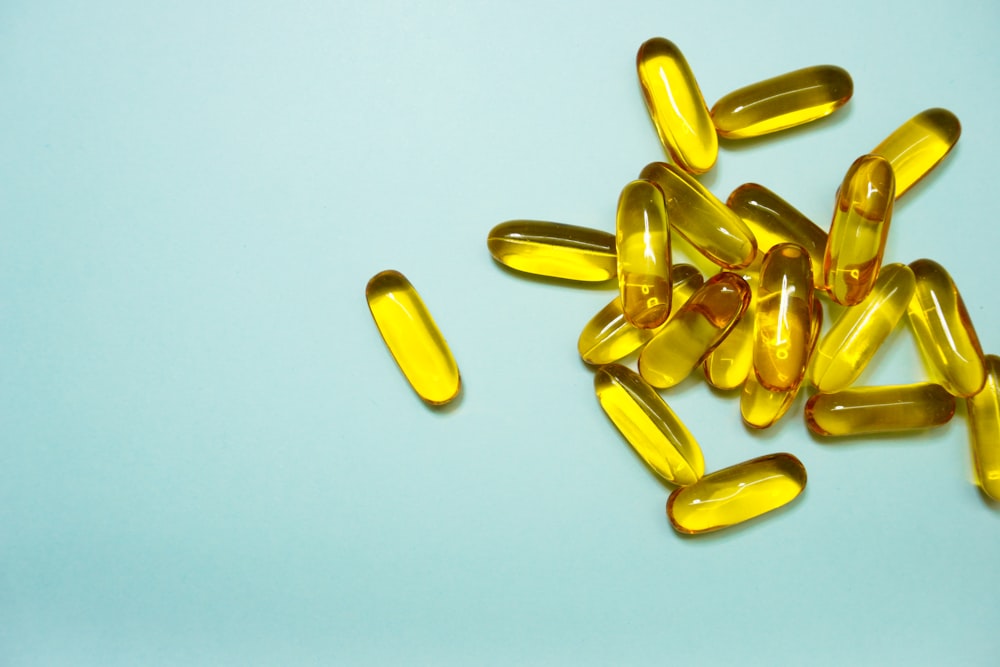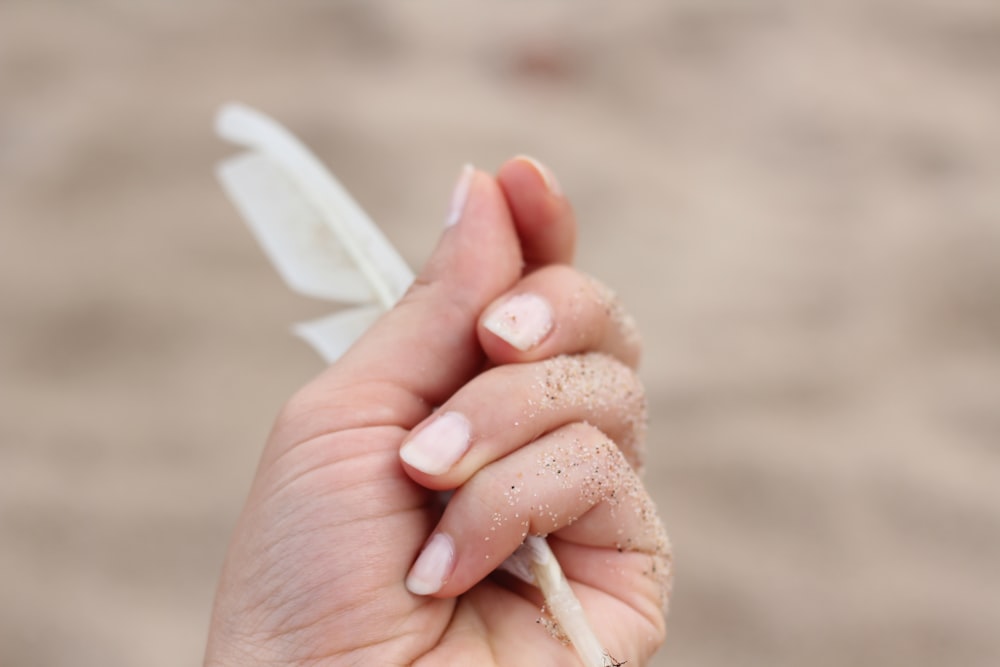
Just as our own physical and mental health varies from time to time, so does the health of our hair, skin, and nails. When we do not feed our bodies what it needs to produce healthy hair, skin, and nails, we can supplement with vitamins and nutrients such as biotin and silica to help restore.
When we notice our hair is thinning, not growing at a normal pace, or we notice a lack of shine and lustre in it, we’ll typically also notice unwanted changes in the skin and nails at the same time. The nails and skin may reflect undesirable changes as well as the hair because the same nutrient deficiencies often affect hair, skin and nails. You might notice skin discolouration or paleness, rashes, and skin dryness. If your hair and skin are suffering, you can bet that your nails will as well. When our nails are not receiving the nutrients they require, you may notice nail breakage and flakes.
The Link Between Mental Health and Unhealthy Hair, Skin and Nails
Just like our mood and mental health, our hair, skin and nails go through cycles (ups and downs). At times, these cycles are good, other times seemingly not so good.
When our mental health suffers, the hair, skin and nails may be affected as well.
It is very common to experience hair loss when you’re overly stressed, for example. While experiencing an abundance of stress, not eating right, post-operation, post-childbirth and illnesses from minor to major, undesirable changes in the hair, skin, and nails can occur. In addition to therapy, these distressing symptoms can often be treated in the way of adding vitamins or supplements to your diet, or eating foods rich in healthy vitamins and minerals.
How Nutritional Deficiencies Can Cause Dry or Damaged Hair, Skin and Nails

Some symptoms of a nutrient deficiency can show up in your hair as a lack of shine or lustre. The hair can also become dry, damaged, brittle, and at times show signs of breakage.
Nutrient deficiencies can also stunt hair growth or lead to hair loss. You may notice your hair not growing at a normal pace, or notice much more hair loss than usual.
The skin is impacted by nutrient deficiencies as well. You may experience your skin becoming paler, having a rash or you’ll notice extra dry or damaged skin. As for your nails, they can become easier to break without the right vitamins and minerals in your diet.
Unhealthy hair, skin or nails, is your body’s way of telling you it is deficient in certain vitamins. Your body might be low in the protein haemoglobin which is necessary for oxygen to reach the body’s hair, skin and nails.
When you realize your body is likely telling you it’s deficient in certain nutrients, you can get blood work done to confirm what you’re deficient in. Alternatively, you can just try adding more vitamins and minerals into your diet by using supplements or changing your diet, and see if your symptoms improve. You may find that after a couple of months, both your physical and mental health symptoms improve just by changing your diet.
It’s a good idea to turn to vitamins to replenish and restore the hair, skin, and nails. Below are a few examples of the best vitamins for healthy hair, skin and nails:
B-Vitamins Such as Biotin
B-vitamins help create more red blood cells, which carry oxygen and nutrients to the scalp and hair follicles, promoting healthy hair growth.
Vitamin B7 (Biotin) can help treat dull or dry skin. It revitalizes your skin and replenishes it.
Biotin is a vitamin that rejuvenates the hair, prevents hair dryness, stimulates keratin production in the hair. This can speed up hair growth.
Since biotin promotes healthy cell growth and helps you metabolize protein-building amino acids that are essential for nail growth, it’s also great for maintaining healthy nails. Biotin-rich foods and supplements will help strengthen your nails.
Eating legumes, egg yolks, sunflower seeds, almonds, sweet potatoes, bananas, broccoli, and avocados are some examples of foods that are great sources of biotin. Yes, biotin supplements are available, but most people can get enough vitamins through their diet.
Vitamin E
Vitamin E is one of the most common ingredients in skincare products. It is an antioxidant, and antioxidants are important because they prevent oxidative damage to cells by helping remove free radicals in the body.
Vitamin E is known for being great for the skin, but it’s also good for your hair and nails. Vitamin E in the diet improves your body’s flow of blood and oxygen, which is required to produce healthy hair and nails.
Foods high in vitamin E include sunflower seeds, almonds, mangoes, avocados, salmon, cod and lobster.
Vitamin D

Vitamin D is a vitamin that helps create new hair follicles. More hair follicles can lead to thicker hair, and more hair follicles also help prevent hair loss.
This means that vitamins such as vitamin D can help promote healthy hair growth and thicker, healthier-looking hair.
Vitamin D also helps your body absorb calcium, which is essential for having healthy nails.
Your skin can benefit from vitamin D as well (not too much, though.) Vitamin D can help promote skin cell growth.
You probably know that if you don’t get enough sunlight, you could become deficient in vitamin D. Foods that contain vitamin D include canned tuna, sardines, salmon, eggs and mushrooms. Much of the time, the orange juice or soy milk from the grocery store comes fortified with vitamin D as well.
Always speak to a doctor or naturopath before taking vitamin supplements, as too much of a certain vitamin can be detrimental.
Other Nutrients and Supplements that Can Promote Healthy Hair, Skin and Nails
In addition to vitamins, there are many other nutrients that promote healthier hair, skin and nails. Below are some more you should consider adding to your diet or supplementation program.
- Silica: While biotin rejuvenates the hair, silica strengthens it and helps prevent hair thinning. Silicon dioxide is a mineral made from silicon and oxygen. Natural sources of silica include green beans, spinach and bananas. You can also find it in the form of supplements or extracts. Many pharmacies have products such as Hairforce which combine biotin and silica for healthy hair.
- Iron: An iron deficiency can lead to dry and damaged hair, and even hair loss. An iron deficiency can also cause dry and damaged skin and nails. Lower iron levels result in lower levels of hemoglobin, hence, there’s lesser oxygen for hair, skin and nails. When your hair and skin are deprived of oxygen, both will look less healthy. In addition to iron supplements, you can also get more iron in your diet by adding raw cacao powder with vitamin C to your smoothies, or eating more dark, leafy greens.
- Collagen: Available as a supplement or even in powder and gummy form, collagen can promote the health of hair, skin, and nails as well. Collagen is a vital protein antioxidant which over time restores skin elasticity, while also potentially promoting hair growth and preventing nail breakage.
- Omega 3: Omega 3 fatty acids contribute to healthy-looking hair, skin and nails. An omega 3 deficiency can lead to dry skin, brittle nails and dry hair.
How Long Will it Take to See Results and Healthier Hair, Skin and Nails?

When you follow the directions of experts, supplements and vitamins are a safe and easy way to restore nutrients. Be aware that like anything, this takes time. You cannot expect to start eating more foods with these vitamins or start taking a supplement and see immediate results. It is important to understand that it takes time to see results.
If you’re consistent with your intake and consumption, you’ll most likely see some positive results in about one month’s time.
The importance of listening to your body and being aware of what it may be telling you is key. Fatigue and insomnia can be your body’s way of telling you that you need more vitamins or supplements. Before adding any vitamins or supplements into your routine, consult with your family doctor to ensure it won’t negatively interact with any current medications or supplements you may already be taking. It’s wise to have bloodwork done before starting these changes to your diet and have bloodwork done again after a few months, so you can document the changes.
When it comes to continued care, it’s best to have a professional Red Seal hairstylist like myself, who is trained enough to notice changes in your hair and can spot the symptoms of unhealthy hair. A Red Seal hairstylist can evaluate your hair, skin and nails and assist you in determining what may be needed to improve your health and vitality.
Are Your Hair or Skin Problems Genetic?
Many common hair and skin problems are genetic. If you find out through a DNA test that you’re genetically prone to developing a certain skin condition, for example, you can take preventative measures by adding some of these important vitamins and nutrients into your diet. In turn, these vitamins will also help your hair health.
Cynthia Skabar is a Red Seal Hairstylist and has been a hair and beauty instructor for over 20 years. She is the founder of beautyculturequeen.com where you can contact her about her high-quality hair products and hair services.







Comments are closed.